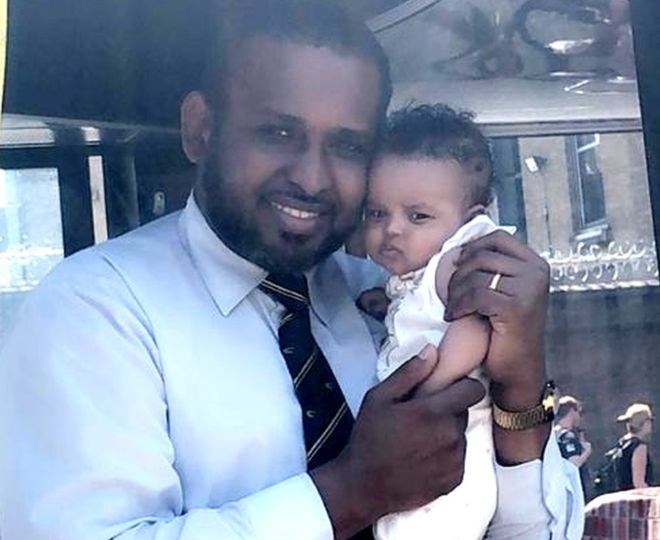
Tuesday April 21, 2020

The signs for Dahabshiil, the Somali money transfer company, are a familiar sight in some London’s streets.
The green and white logo is displayed in the windows of internet cafes and shops from the densely packed inner-city thoroughfares of Camden, Mile End and Shepherd’s Bush to the sprawling suburbs.
London’s community of Somalis is one of the largest in our diaspora and a regular ritual for its members is to go to these shops to send money to their families back home.
This is a vital lifeline for those in a country that is still emerging from decades of conflict.
Missing crucial payments
It is estimated that Somalis transfer more than $1bn (£0.8bn) every year – more than Somalia receives in aid.
But the coronavirus crisis is having an impact on these crucial payments.
The pandemic, which has claimed more than 16,500 lives across the UK, has hit the Somali community hard in both economic and human terms.
The dead include a disproportionate number of Somalis, such as Nadir Nur, a 48-year-old bus driver who was said to be in good health. He leaves behind a 10-month old daughter and four other children.
Ismail Mohamed Abdulwahab, a 13-year-old boy from South London, died of the virus alone in hospital. His family could not even attend his funeral, as they were forced to self-isolate.
At the other end of the age-range there was Ahmed Ismail Hussein Hudeidi, a founding father of modern Somali music, who died in London after contracting coronavirus at the age of 91.
It is impossible to be sure of the exact number of Somalis in London.
According to the UK’s Office for National Statistics there were 108,000 Somali-born residents of the UK as a whole in 2018.
But this this only records those born in Somalia, not ethnic Somalis born in the UK or those who have come from other European countries, such as the Netherlands or Sweden.
Most estimates suggest there are around 250,000 in the UK, with by far the largest group living in London.
There have been several waves of Somali immigration:
– In the 19th Century, some Somali merchant seamen settled in London, along with port cities such as Cardiff and Liverpool
– After 1991, many thousands came fleeing the civil war
– In the 2000s, there has been a wave of secondary migration, for instance some 20,000 Dutch Somalis arrived in the 2000s – a third of all ethnic Somalis in the Netherlands
Diabetes and blood pressure
There are a number of reasons why Somalis, like some other minority ethnic groups in the UK, appear to have been badly affected by the virus.
In the UK, many older Somalis suffer with pre-existing conditions such as diabetes, and high blood pressure. They often live in overcrowded, multi-generational social housing in low-income areas of large cities.
Somalis in London often work in vital, but low-paid jobs, which now leave them vulnerable on the front line of the crisis.
They are part of London’s migrant workforce: the care workers, nurses, bus drivers and cleaners who work in the most precarious jobs, often on insecure contracts.
Covid-19 has exposed the deep economic and social divides that exist in London.
Since the lockdown began, and most of London’s shops, including many Dahabshiil outlets, have closed their doors, some Somalis have found it hard to adapt as they are unsure how to send money using apps or phones.
“The pressure to send money to Somalia can take a toll and now that some have lost their jobs that pressure weighs even more heavily” said Einashe.
I recently spoke to an elderly relative who was concerned she was unable to send money back to her family because the shops near her home were closed. In the end, another relative had to help her transfer the money via an app, something which she did not understand.
The money, typically between $150 and $300, that people send back every month make a world of difference to their families. People depend on it for their daily expenses: to pay for food, rent or medication.
But the pressure to send money to Somalia can take a toll on people who are poor and living in one of the most expensive cities in the world.














